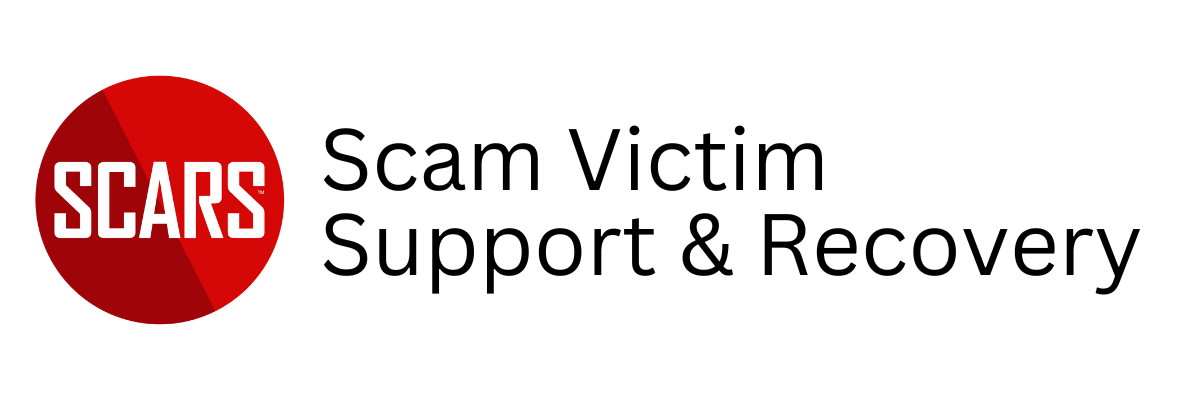What does Justice Mean to Scam Victims?
Justice can sometimes be elusive but for Scam Victims it seems like it is Impossible! But it is Possible!
Primary Category: Scam Victim Recovery
Author:
• Tim McGuinness, Ph.D., DFin, MCPO, MAnth – Anthropologist, Scientist, Polymath, Director of the Society of Citizens Against Relationship Scams Inc.
About This Article
Justice for scam victims can feel elusive, as the chances of recovering lost money or seeing perpetrators arrested are slim. Instead, the best way for victims to achieve a sense of justice is by shifting their focus inward, prioritizing their own needs and recovery.
Personal healing becomes paramount in the face of financial and legal setbacks. Through professional counseling, joining support groups, and engaging in self-care, victims can regain control over their lives.
This approach empowers them to rebuild their sense of self-worth, move past the trauma, and find a renewed sense of stability and resilience, ultimately achieving a form of justice centered on their well-being.

What does Justice mean to Scam Victims – Justice can sometimes be elusive but for Scam Victims it seems like it is Impossible!
Justice is a deeply ingrained concept in our society, associated with fairness and the assurance of equal and impartial treatment.
However, for scam victims, seeking justice after the ending of a scam seems impossible but it is a crucial part of their recovery process. However, the path to justice is filled with challenges, especially when most victims will not recover their money and the majority of perpetrators evade capture.
We need to explore what justice means for scam victims and how it can be achieved despite these significant obstacles.
Remember that Justice is about Balance!
The Nature of Justice
Justice, in its broadest sense, involves holding wrongdoers accountable and ensuring that victims receive fair treatment. For scam victims, this encompasses not only the punishment of perpetrators but also psychological and emotional support. While justice is traditionally seen through the lens of legal retribution, it also includes the broader societal recognition of the victim’s suffering and the support they need to receive to rebuild their lives.
Accountability and Retribution
One of the most immediate forms of justice that scam victims seek is the apprehension and punishment of the scammers. Seeing the perpetrator held accountable provides a sense of closure and validates the victim’s experience. However, the reality is stark: over 99% of scammers are not arrested, at least not in the immediate aftermath of their crimes. Scammers operate from different countries around the world using sophisticated methods to evade law enforcement. This global nature of cybercrime makes it exceedingly difficult for authorities to track and prosecute offenders in all cases.
The Challenge of Money Recovery
For scam victims, the financial loss is devastating. Unfortunately, the likelihood of recovering lost money is minimal. Even in cases where scammers are apprehended, the funds are often already dispersed or laundered, making recovery virtually impossible. A small handful of victim do recover but the odds are against most scam victims. This means that scam victims must come to terms with this harsh reality as they seek justice, understanding that the legal system may not be able to restore their financial losses or even arrest the criminals.
Psychological and Emotional Support
Given the low probability of financial recovery and the high chance of scammers evading arrest, psychological and emotional support becomes an absolute necessity for scam victims.
Being heard and acknowledged by authorities and society significantly aids in their healing process. Victims need to feel validated and supported. This needs counseling, support providers, and education. This type of justice focuses on the victim’s mental well-being, helping them rebuild their stability, resilience, confidence, and trust in others.
International Cooperation and Cybercrime Laws
For most scam victims it is hard to understand how the global justice system works and why it is so hard for them to get what should be fundamental for us all. Addressing the global nature of scams requires robust international cooperation and strong cybercrime laws that are only in place in some countries. Governments and law enforcement agencies need to work together across borders to track, apprehend, and prosecute scammers. While this is a daunting task, international treaties and cooperative efforts are beginning to enhance the effectiveness of these efforts but this is also a long process.
The last 4 years have seen huge losses with scams increasing at 70-80% per year. This makes justice in its traditional forms extraordinarily challenging. The world demands greater emphasis on cybersecurity and public education not just to help prevent scams and protect potential victims but also to help those already victimized find the true path to recovery.
Societal Role in Delivering Justice
Society plays a significant role in delivering justice to scam victims by ending judgment, eliminating shame, and by providing the tools that victims need to restore their life. Public awareness and education about the dangers of scams and how to avoid them can reduce the number of victims, but even more important is having realistic rational, and factual education so victims understand what happened, how it happened, and what their path will be going forward.
Making sure that scam victims have supportive communities where victims can share their experiences without hate, urban legends, and instant experts and saviors. Scam victims need to receive emotional support support coupled with factual information to help them fully understand the experience.
Legal Support
Scam victims also need legal support. Most U.S. States (an other countries such as Canada, Australia, etc.) have victim advocacy offices both at the state attorneys general’s office and at local district attorneys or prosecutor’s offices. They can help scam victims better understand the local criminal justice process and also obtain the crime victim benefits that are available.
The Path Forward
For scam victims, the best path to justice often lies not in pursuing the elusive perpetrators but in turning inward and focusing on their own recovery and well-being.
Given the low probability of apprehending scammers and recovering lost funds, it becomes important for victims to prioritize their emotional and psychological health. Seeking justice through personal healing can be profoundly empowering, as it shifts the focus from the frustration of an unresolved crime to the proactive steps of rebuilding one’s life.
Victims can begin this journey with professional counseling and signing up for SCARS Institute’s support & educational services where they can learn and recover and find solidarity with others who have faced similar ordeals.
By concentrating on their own needs and healing from the trauma, scam victims can regain control over their lives, rebuild their sense of self-worth, and ultimately achieve the most important form of justice that centers on their own well-being and resilience.
Summary
Justice for scam victims is a challenging concept that extends beyond the apprehension and punishment of perpetrators.
While the reality that most victims will not recover their money and most scammers will not be arrested is disheartening, justice can still be pursued through psychological support, learning, and international cooperation. By addressing the emotional and societal impacts of scams, providing robust support systems, and enhancing knowledge frameworks, we can offer a more comprehensive form of justice to those affected by these crimes. Ultimately, ensuring that victims feel heard, validated, and supported is paramount in helping them rebuild their lives and regain their sense of security.
-/ 30 /-
What do you think about this?
Please share your thoughts in a comment below!
Statement About Victim Blaming
SCARS Institute articles examine different aspects of the scam victim experience, as well as those who may have been secondary victims. This work focuses on understanding victimization through the science of victimology, including common psychological and behavioral responses. The purpose is to help victims and survivors understand why these crimes occurred, reduce shame and self-blame, strengthen recovery programs and victim opportunities, and lower the risk of future victimization.
At times, these discussions may sound uncomfortable, overwhelming, or may be mistaken for blame. They are not. Scam victims are never blamed. Our goal is to explain the mechanisms of deception and the human responses that scammers exploit, and the processes that occur after the scam ends, so victims can better understand what happened to them and why it felt convincing at the time, and what the path looks like going forward.
Articles that address the psychology, neurology, physiology, and other characteristics of scams and the victim experience recognize that all people share cognitive and emotional traits that can be manipulated under the right conditions. These characteristics are not flaws. They are normal human functions that criminals deliberately exploit. Victims typically have little awareness of these mechanisms while a scam is unfolding and a very limited ability to control them. Awareness often comes only after the harm has occurred.
By explaining these processes, these articles help victims make sense of their experiences, understand common post-scam reactions, and identify ways to protect themselves moving forward. This knowledge supports recovery by replacing confusion and self-blame with clarity, context, and self-compassion.
Additional educational material on these topics is available at ScamPsychology.org – ScamsNOW.com and other SCARS Institute websites.
-/ 30 /-
What do you think about this?
Please share your thoughts in a comment below!
SCARS LINKS: AgainstScams.org RomanceScamsNOW.com ContraEstafas.org ScammerPhotos.com Anyscam.com ScamsNOW.com
reporting.AgainstScams.org support.AgainstScams.org membership.AgainstScams.org donate.AgainstScams.org shop.AgainstScams.org
youtube.AgainstScams.org linkedin.AgainstScams.org facebook.AgainstScams.org
Important Information for New Scam Victims
- Please visit www.ScamVictimsSupport.org – a SCARS Website for New Scam Victims & Sextortion Victims.
- SCARS Institute now offers its free, safe, and private Scam Survivor’s Support Community at www.SCARScommunity.org – this is not on a social media platform, it is our own safe & secure platform created by the SCARS Institute especially for scam victims & survivors.
- SCARS Institute now offers a free recovery learning program at www.SCARSeducation.org.
- Please visit www.ScamPsychology.org – to more fully understand the psychological concepts involved in scams and scam victim recovery.
If you are looking for local trauma counselors, please visit counseling.AgainstScams.org
If you need to speak with someone now, you can dial 988 or find phone numbers for crisis hotlines all around the world here: www.opencounseling.com/suicide-hotlines
Statement About Victim Blaming
Some of our articles discuss various aspects of victims. This is both about better understanding victims (the science of victimology) and their behaviors and psychology. This helps us to educate victims/survivors about why these crimes happened and not to blame themselves, better develop recovery programs, and help victims avoid scams in the future. At times, this may sound like blaming the victim, but it does not blame scam victims; we are simply explaining the hows and whys of the experience victims have.
These articles, about the Psychology of Scams or Victim Psychology – meaning that all humans have psychological or cognitive characteristics in common that can either be exploited or work against us – help us all to understand the unique challenges victims face before, during, and after scams, fraud, or cybercrimes. These sometimes talk about some of the vulnerabilities the scammers exploit. Victims rarely have control of them or are even aware of them, until something like a scam happens, and then they can learn how their mind works and how to overcome these mechanisms.
Articles like these help victims and others understand these processes and how to help prevent them from being exploited again or to help them recover more easily by understanding their post-scam behaviors. Learn more about the Psychology of Scams at www.ScamPsychology.org
SCARS INSTITUTE RESOURCES:
If You Have Been Victimized By A Scam Or Cybercrime
♦ If you are a victim of scams, go to www.ScamVictimsSupport.org for real knowledge and help
♦ SCARS Institute now offers its free, safe, and private Scam Survivor’s Support Community at www.SCARScommunity.org/register – this is not on a social media platform, it is our own safe & secure platform created by the SCARS Institute especially for scam victims & survivors.
♦ Enroll in SCARS Scam Survivor’s School now at www.SCARSeducation.org
♦ To report criminals, visit https://reporting.AgainstScams.org – we will NEVER give your data to money recovery companies like some do!
♦ Follow us and find our podcasts, webinars, and helpful videos on YouTube: https://www.youtube.com/@RomancescamsNowcom
♦ Learn about the Psychology of Scams at www.ScamPsychology.org
♦ Dig deeper into the reality of scams, fraud, and cybercrime at www.ScamsNOW.com and www.RomanceScamsNOW.com
♦ Scam Survivor’s Stories: www.ScamSurvivorStories.org
♦ For Scam Victim Advocates visit www.ScamVictimsAdvocates.org
♦ See more scammer photos on www.ScammerPhotos.com
You can also find the SCARS Institute’s knowledge and information on Facebook, Instagram, X, LinkedIn, and TruthSocial
Psychology Disclaimer:
All articles about psychology and the human brain on this website are for information & education only
The information provided in this and other SCARS articles are intended for educational and self-help purposes only and should not be construed as a substitute for professional therapy or counseling.
Note about Mindfulness: Mindfulness practices have the potential to create psychological distress for some individuals. Please consult a mental health professional or experienced meditation instructor for guidance should you encounter difficulties.
While any self-help techniques outlined herein may be beneficial for scam victims seeking to recover from their experience and move towards recovery, it is important to consult with a qualified mental health professional before initiating any course of action. Each individual’s experience and needs are unique, and what works for one person may not be suitable for another.
Additionally, any approach may not be appropriate for individuals with certain pre-existing mental health conditions or trauma histories. It is advisable to seek guidance from a licensed therapist or counselor who can provide personalized support, guidance, and treatment tailored to your specific needs.
If you are experiencing significant distress or emotional difficulties related to a scam or other traumatic event, please consult your doctor or mental health provider for appropriate care and support.
Also read our SCARS Institute Statement about Professional Care for Scam Victims – click here
If you are in crisis, feeling desperate, or in despair, please call 988 or your local crisis hotline – international numbers here.
More ScamsNOW.com Articles
A Question of Trust
At the SCARS Institute, we invite you to do your own research on the topics we speak about and publish. Our team investigates the subject being discussed, especially when it comes to understanding the scam victims-survivors’ experience. You can do Google searches, but in many cases, you will have to wade through scientific papers and studies. However, remember that biases and perspectives matter and influence the outcome. Regardless, we encourage you to explore these topics as thoroughly as you can for your own awareness.















![NavyLogo@4x-81[1] What Is Justice For A Scam Victim? 2024](https://scamsnow.com/wp-content/uploads/2025/04/NavyLogo@4x-811.png)










![scars-institute[1] What Is Justice For A Scam Victim? 2024](https://scamsnow.com/wp-content/uploads/2025/04/scars-institute1.png)

![niprc1.png1_-150×1501-1[1] What Is Justice For A Scam Victim? 2024](https://scamsnow.com/wp-content/uploads/2025/04/niprc1.png1_-150x1501-11.webp)